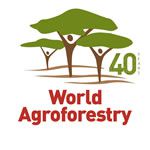The Upper Tana river basin is Nairobi’s primary water source, power generation, agricultural and other livelihoods activities downstream. Across the basin, the expansion of agriculture and resulting deforestation have led to land degradation and soil erosions. Many interventions have been targeted at priority watersheds within the basin, aimed at reducing harmful land use practices while simultaneously, support the livelihoods of the smallholder farming communities that populate this area. In partnership with The Nature Conservancy (TNC), the country government and local NGOs, the World Agroforestry Centre (ICRAF) has sought to introduce the SHARED methodology to the design and implementation of such interventions. The SHARED approach aims to foster innovation, local ownership and broad consensus on interventions designed to support livelihoods and ecosystem health, by enabling structured interaction between stakeholders, through critical interpretation, evaluation, co-learning, and decision-making between all parties. This decision-making methodology requires complex geophysical and socio-economic data for all stakeholders in order for decisions on land management to be made through collaborative consultations.
ICRAF has developed sophisticated moderate- to high-resolution mapping of geophysical data within the Upper Tana project area – a powerful methodology to inform decision-making on current and future interventions. The inclusion of socio-economic indicators collected provides crucial data on livelihoods for triangulating and understanding findings on land health. However, this methodology could be further strengthened by collecting and analysing self-reported data on beliefs and practices from smallholder farmers. Specifically, understanding farmers’ beliefs that relate to changes in land use can enrich the insights from biophysical data on carbon stocks or storage. Moreover, evidence on farmers’ perceptions of land productivity could support more effective, tailored, and sustainable interventions designed to enhance yield, and limit degradation.
Africa’s Voices Foundation (AVF) is deploying interactive radio shows – in which audiences participate by submitting SMS responses to questions asked on air – to collect and analyse the perceptions and beliefs that affect community practices related to land use and health. The resultant social evidence will be overlaid and triangulated with ICRAF’s geophysical data as a formative research tool for more effective, tailored interventions. The interactive radio method – which will also share findings with the audience and collects their responses – will provide rich, cost-effective insights to support the operationalisation of the SHARED methodology in the Upper Tana basin. Africa’s Voices will work closely with ICRAF, TNC and other stakeholders to ensure that the community’s perspectives are key determinants of programme and policy decisions.
